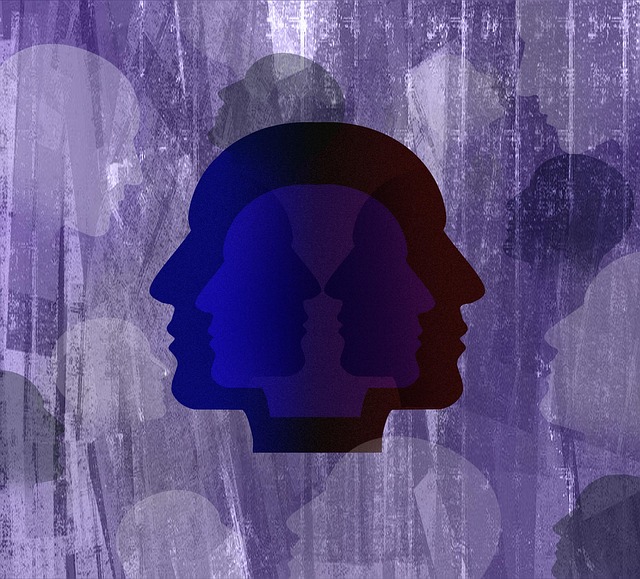Early recognition of Autism Spectrum Disorder (ASD) symptoms in teens is crucial, as it allows for precise diagnosis and tailored therapy during adolescence's critical developmental stages. Effective tools include behavioral therapy, mindfulness, and journaling to support emotional regulation. Healthcare providers must prioritize their well-being to maintain sensitivity in assisting adolescents with ASD navigate daily life. Advanced therapies, self-care routines, and cultural sensitivity enhance diagnosis accuracy, empowering teens to better manage challenges related to Autism Spectrum Disorder (ASD).
Mental illness diagnosis accuracy has long been a concern, especially in adolescent teens, where conditions like Autism Spectrum Disorder (ASD) can be challenging to identify. This article delves into the complexities of ASD diagnosis during adolescence, highlighting challenges faced by healthcare professionals. We explore innovative therapies and assessment techniques tailored for this demographic, focusing on strategies to enhance diagnostic accuracy. By implementing comprehensive support systems, we aim to improve outcomes for adolescent teens on the autism spectrum. Search for ‘therapy for adolescent teens autism spectrum disorder’ to uncover more insights.
- Understanding Autism Spectrum Disorder (ASD) in Adolescent Teens
- Challenges in Diagnosing Mental Illnesses in Young Individuals
- Innovative Therapies and Assessment Techniques for ASD
- Enhancing Diagnosis Accuracy through Comprehensive Support Systems
Understanding Autism Spectrum Disorder (ASD) in Adolescent Teens

Autism Spectrum Disorder (ASD) is a complex neurodevelopmental condition that affects social communication, interaction, and behavior in teens. Recognizing ASD symptoms early is crucial for accurate diagnosis and effective treatment, especially during adolescence when individuals navigate critical developmental stages. Many teen girls and boys with ASD may present unique challenges due to social expectations and camouflage strategies they learn unconsciously to fit in socially. This can lead to delays in diagnosis or misdiagnosis.
Therapy plays a pivotal role in supporting adolescent teens with ASD. Behavioral therapy, for instance, helps build resilience by teaching coping mechanisms and skills for navigating daily life. Additionally, mindfulness techniques and mental wellness journaling exercises can enhance self-awareness and emotional regulation. Meanwhile, healthcare providers must also prioritize burnout prevention strategies to maintain the high level of sensitivity and expertise required to support this population effectively.
Challenges in Diagnosing Mental Illnesses in Young Individuals

Diagnosing mental illnesses in young individuals presents unique challenges due to several factors. Firstly, adolescents and teens often exhibit varying symptoms compared to adults, making it harder to pinpoint specific disorders. For instance, what might seem like typical teenage mood swings could be indicative of a more serious condition like depression or anxiety. Moreover, the presence of comorbidities, such as Autism Spectrum Disorder (ASD), further complicates the process. Young people with ASD may present with unique behavioural traits that can mask or mimic symptoms of other mental health issues.
These challenges underscore the need for comprehensive evaluation methods and tailored interventions. Incorporating therapy techniques specifically designed for adolescent teens, along with stress reduction methods, can significantly improve diagnosis accuracy. The integration of Mental Wellness Podcast Series Production can also offer valuable insights into young people’s experiences, providing additional data points for professionals to consider during assessment. Effective stress management is a crucial component in navigating these complex cases, ensuring that mental health practitioners are equipped to deliver accurate diagnoses and appropriate care.
Innovative Therapies and Assessment Techniques for ASD

The diagnosis and treatment of Autism Spectrum Disorder (ASD) in adolescent teens have seen a surge in innovative approaches. These cutting-edge therapies and assessment techniques are revolutionizing the way professionals understand and support young individuals on the spectrum. One prominent development is the integration of advanced behavioral interventions, which focus on teaching coping skills and enhancing social communication. By combining evidence-based strategies with technology, therapists can now create personalized plans that cater to each teen’s unique needs.
Additionally, the importance of self-care routine development for better mental health cannot be overstated. Encouraging adolescents with ASD to adopt healthy habits such as structured routines, positive thinking, and stress management techniques has shown significant benefits. These strategies not only improve overall well-being but also foster resilience and independent living skills, empowering teens to navigate challenges more effectively.
Enhancing Diagnosis Accuracy through Comprehensive Support Systems

Mental health professionals are continually striving to improve diagnosis accuracy, especially when dealing with complex conditions like Autism Spectrum Disorder (ASD) in adolescent teens. Enhancing diagnostic processes requires a comprehensive support system that goes beyond traditional therapy. This includes integrating self-care routine development for better mental health into treatment plans, fostering confidence boosting strategies tailored to the individual’s needs, and promoting cultural sensitivity in mental healthcare practice.
By incorporating these multifaceted approaches, professionals can ensure a more nuanced understanding of each patient’s experience. Cultural sensitivity is vital, as it recognizes and respects the impact of diverse backgrounds on mental health expressions. Together with evidence-based therapies for adolescent teens with ASD, these strategies aim to improve diagnosis accuracy, ultimately leading to more effective and personalized treatment plans.
Mental illness diagnosis, particularly for adolescents with Autism Spectrum Disorder (ASD), has seen significant strides through innovative therapies and comprehensive support systems. By combining advanced assessment techniques with tailored interventions, we can enhance accuracy and improve outcomes for young individuals navigating ASD. These efforts underscore the importance of early detection and specialized care in fostering a healthier, more inclusive future for those affected by mental health conditions. With continued research and collaborative approaches, we can ensure that therapies for adolescent teens with ASD are accessible, effective, and life-enhancing.








